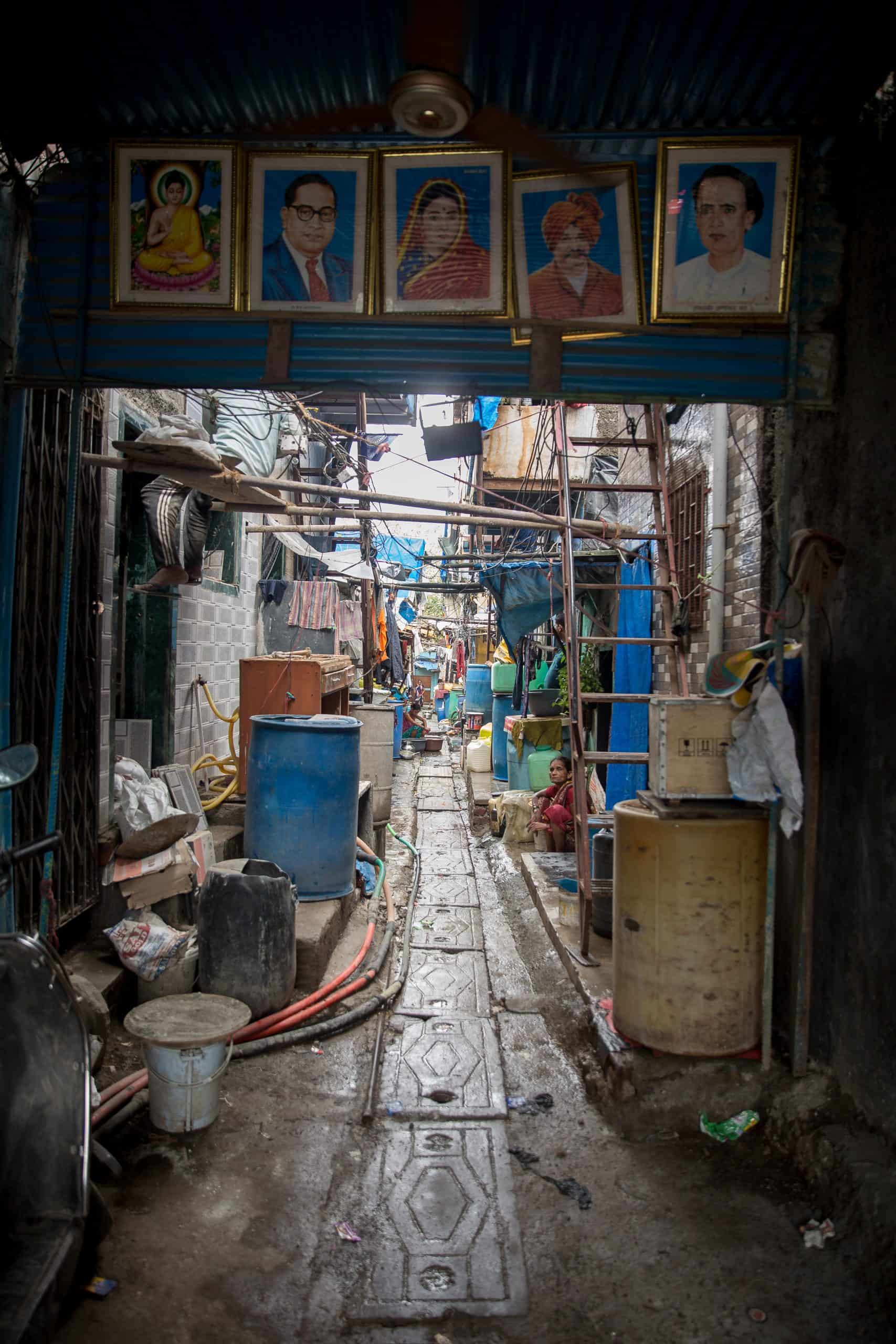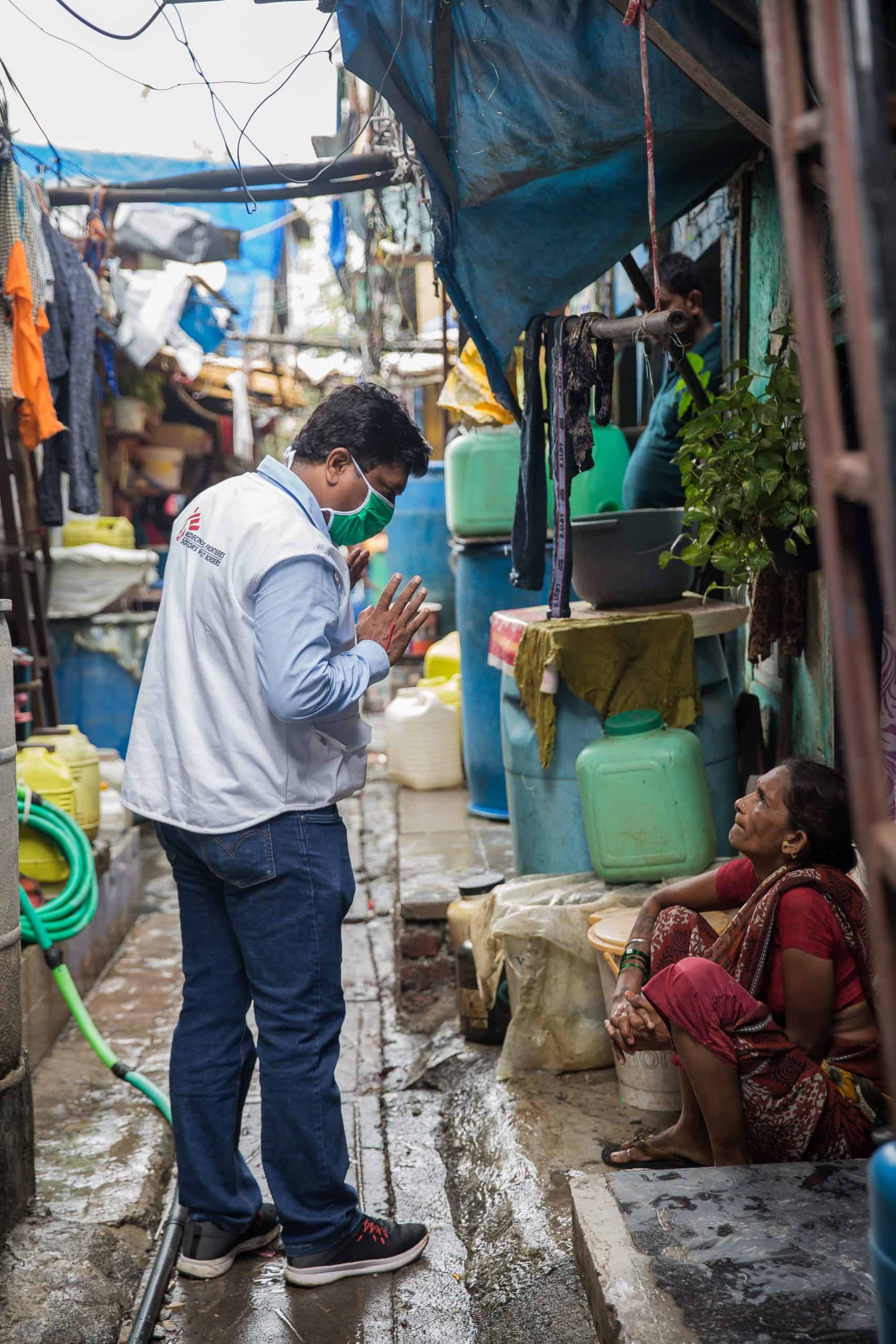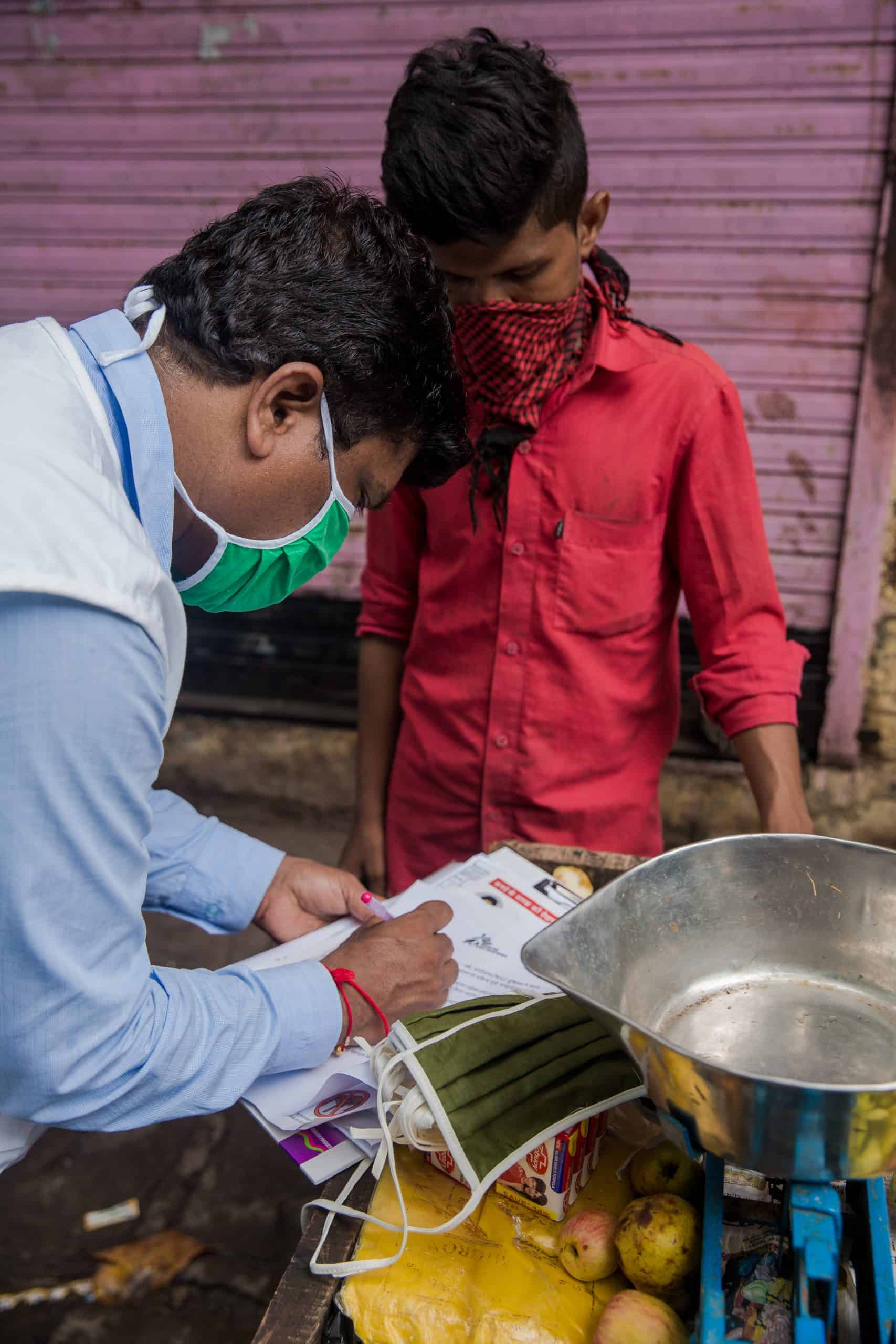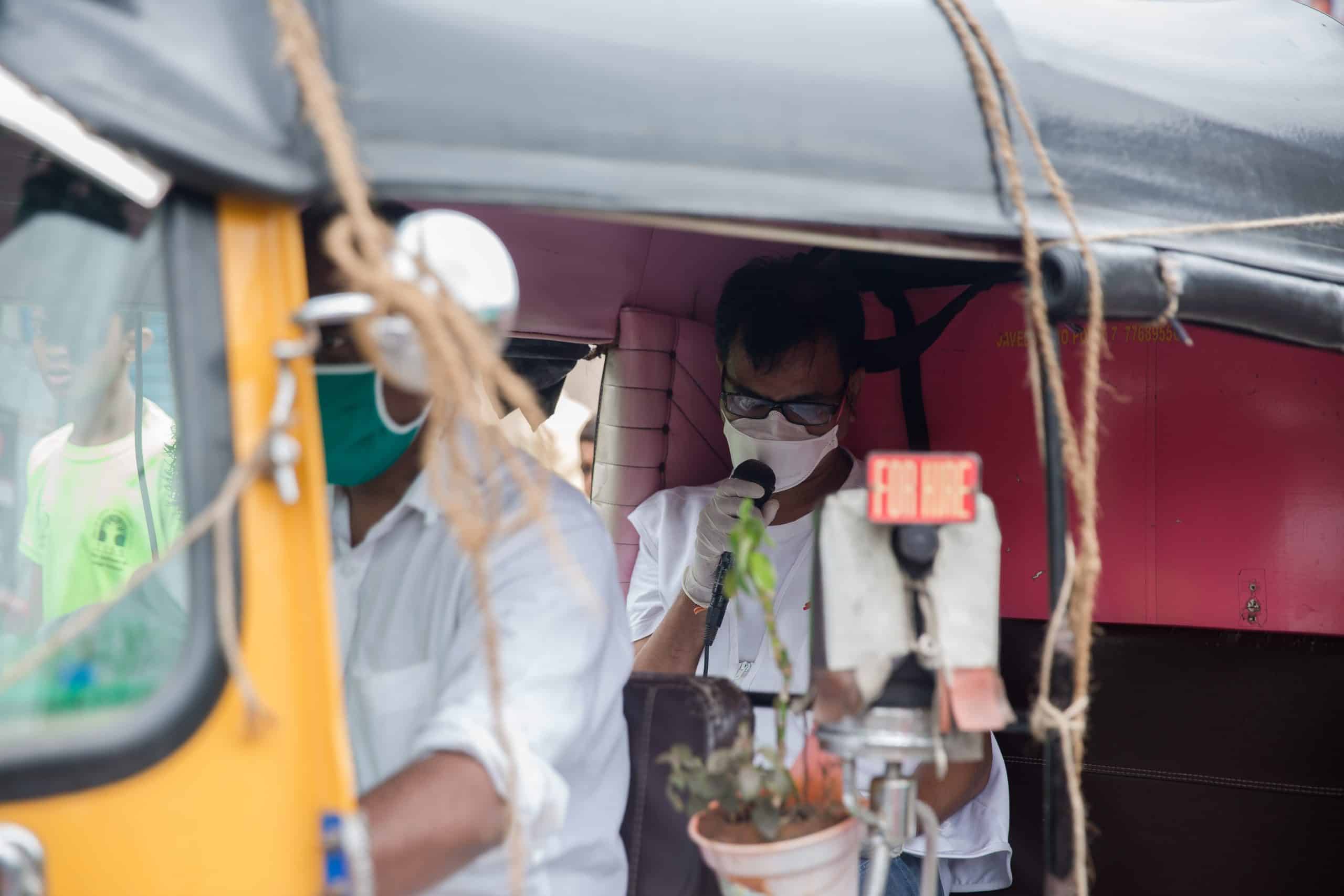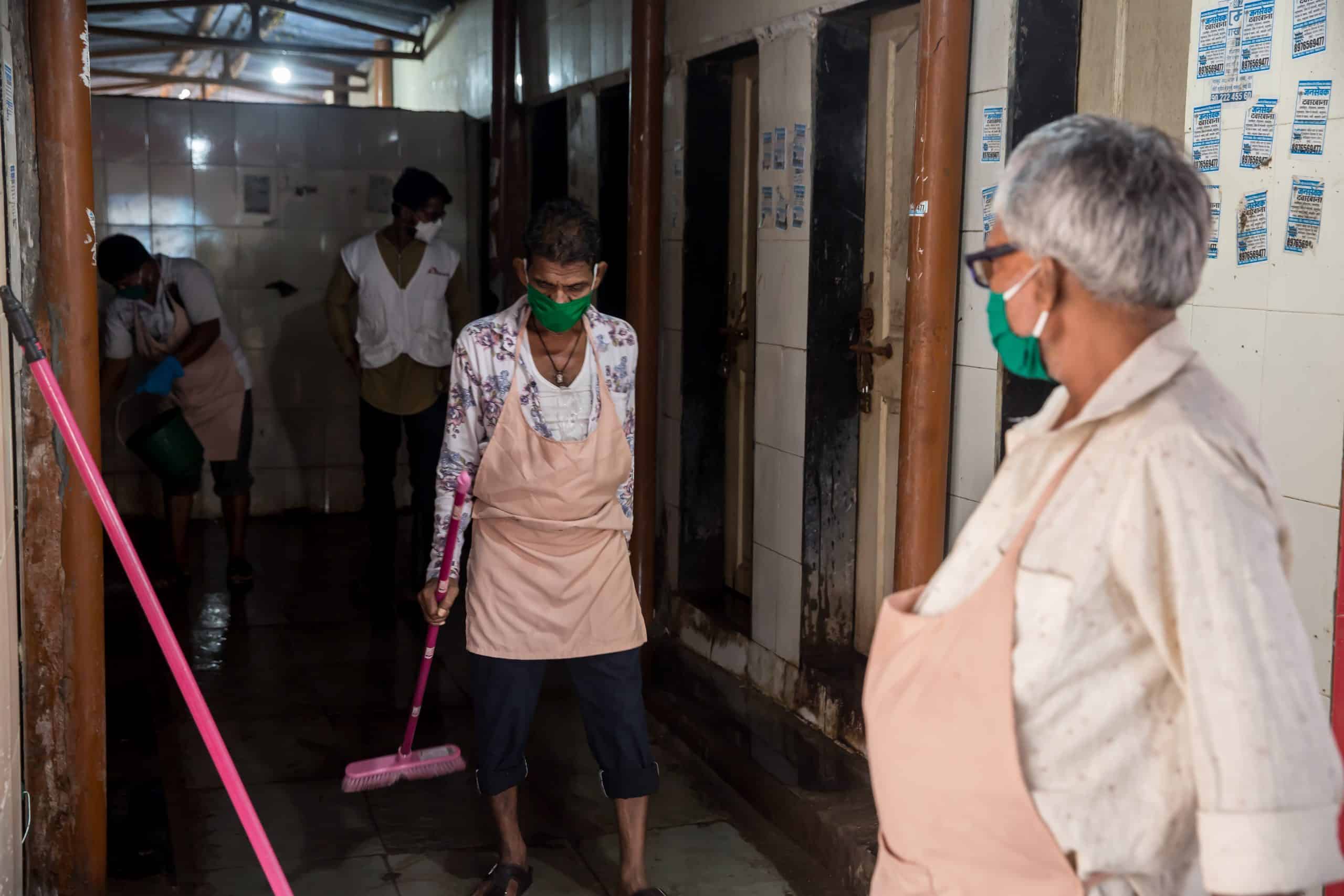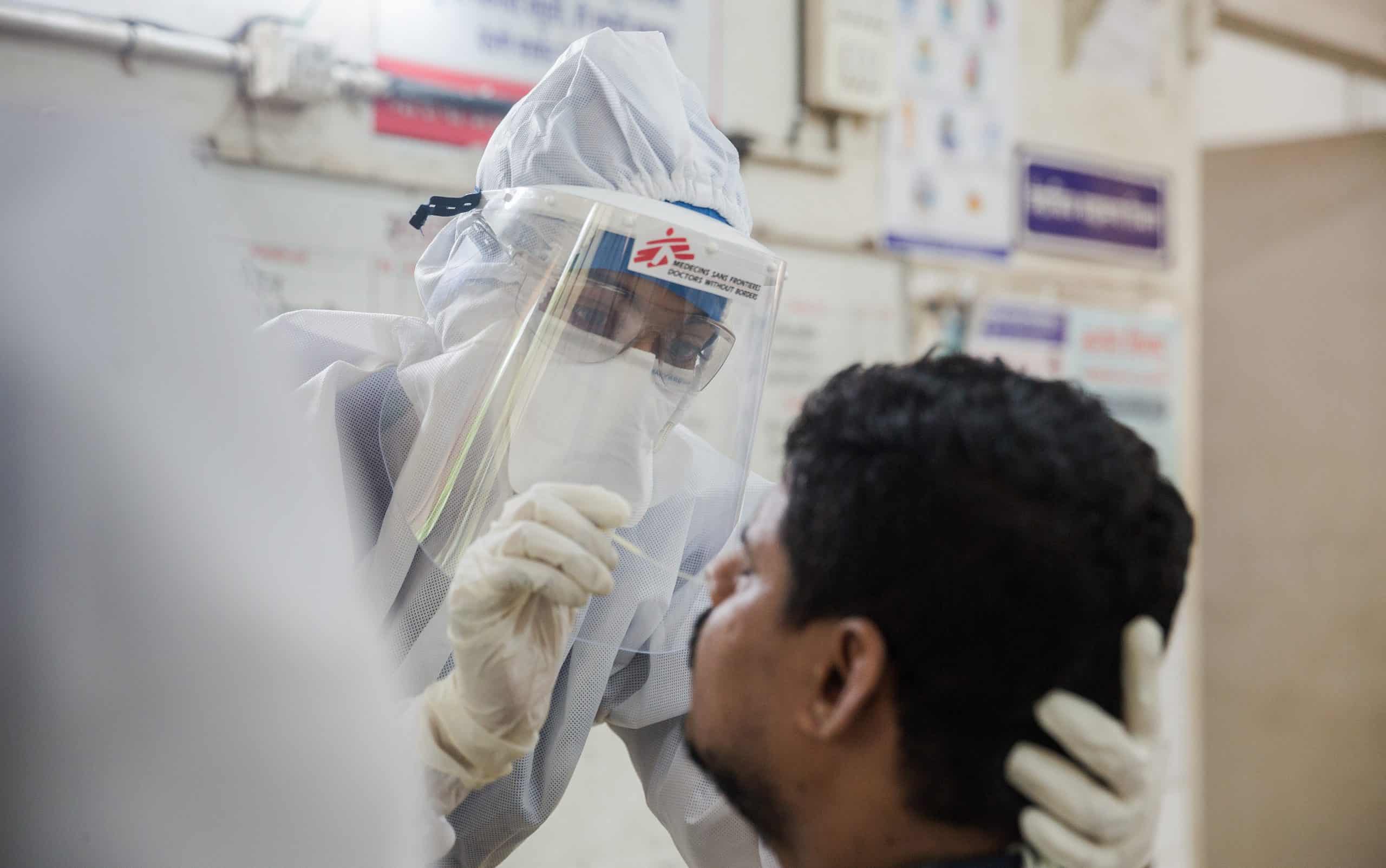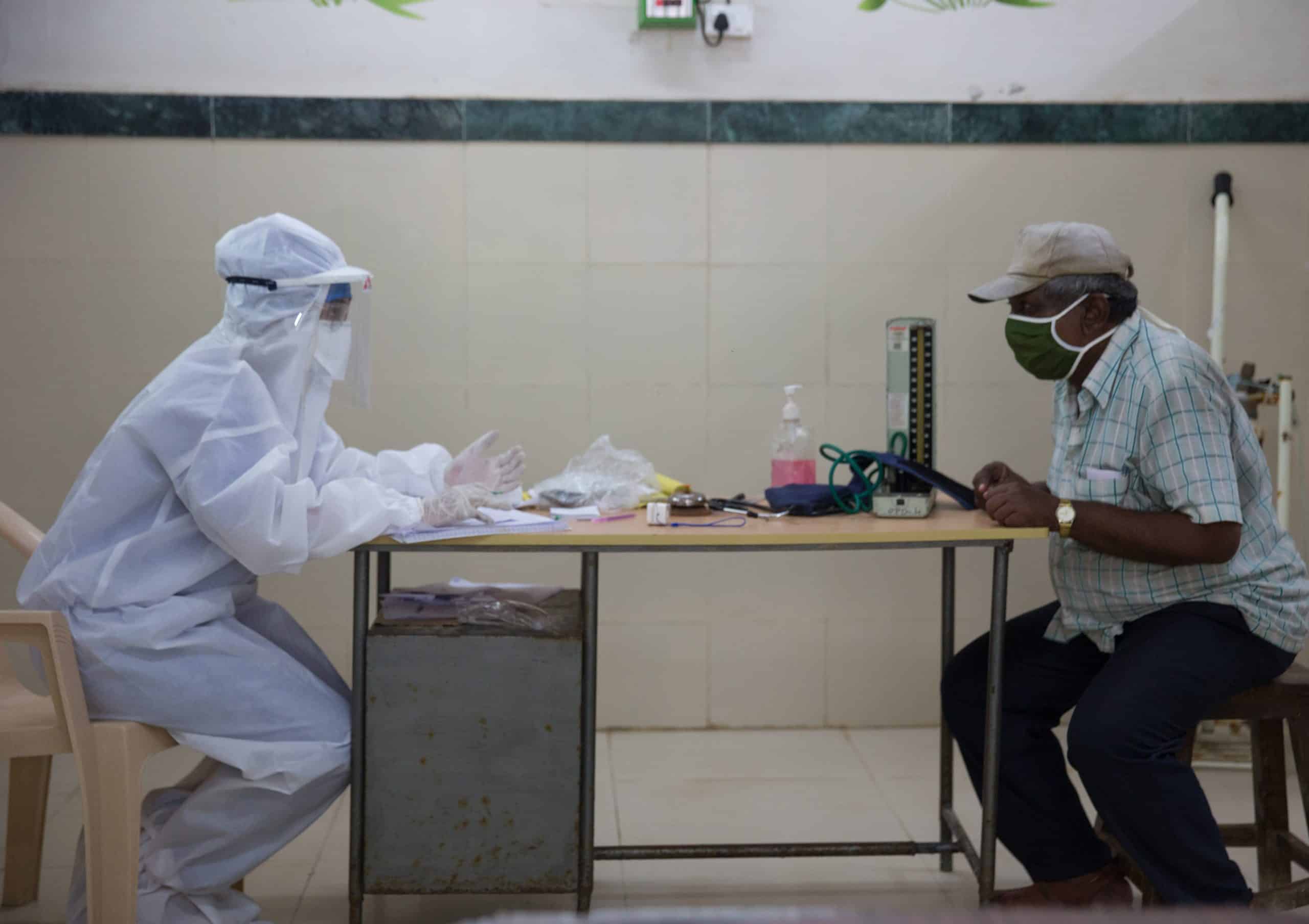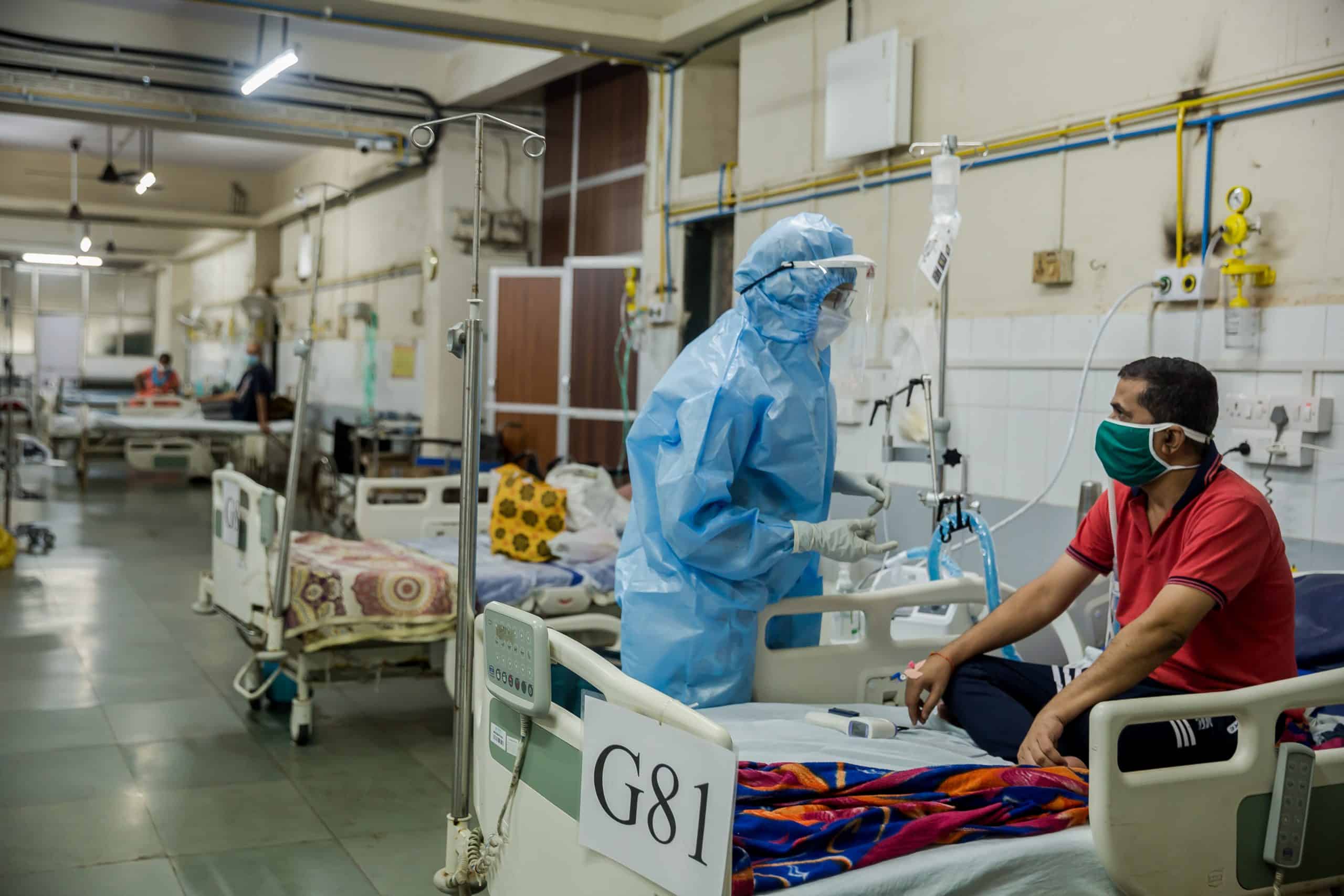In late-August, India surpassed the three-million-mark of people infected by COVID-19. Maharashtra has reported the highest number of COVID-19 cases in the country, with more than a quarter of the total. Two in three of these were in the city of Mumbai.
Mumbai, formerly known as Bombay, is one of the most densely populated cities in India and has been a hotspot for the spread of the novel coronavirus since it was first declared in the country in mid-April 2020. An economic giant, the city has attracted people from rural areas looking for work; the majority of which end up living in squalid circumstances as they struggle to make ends meet.
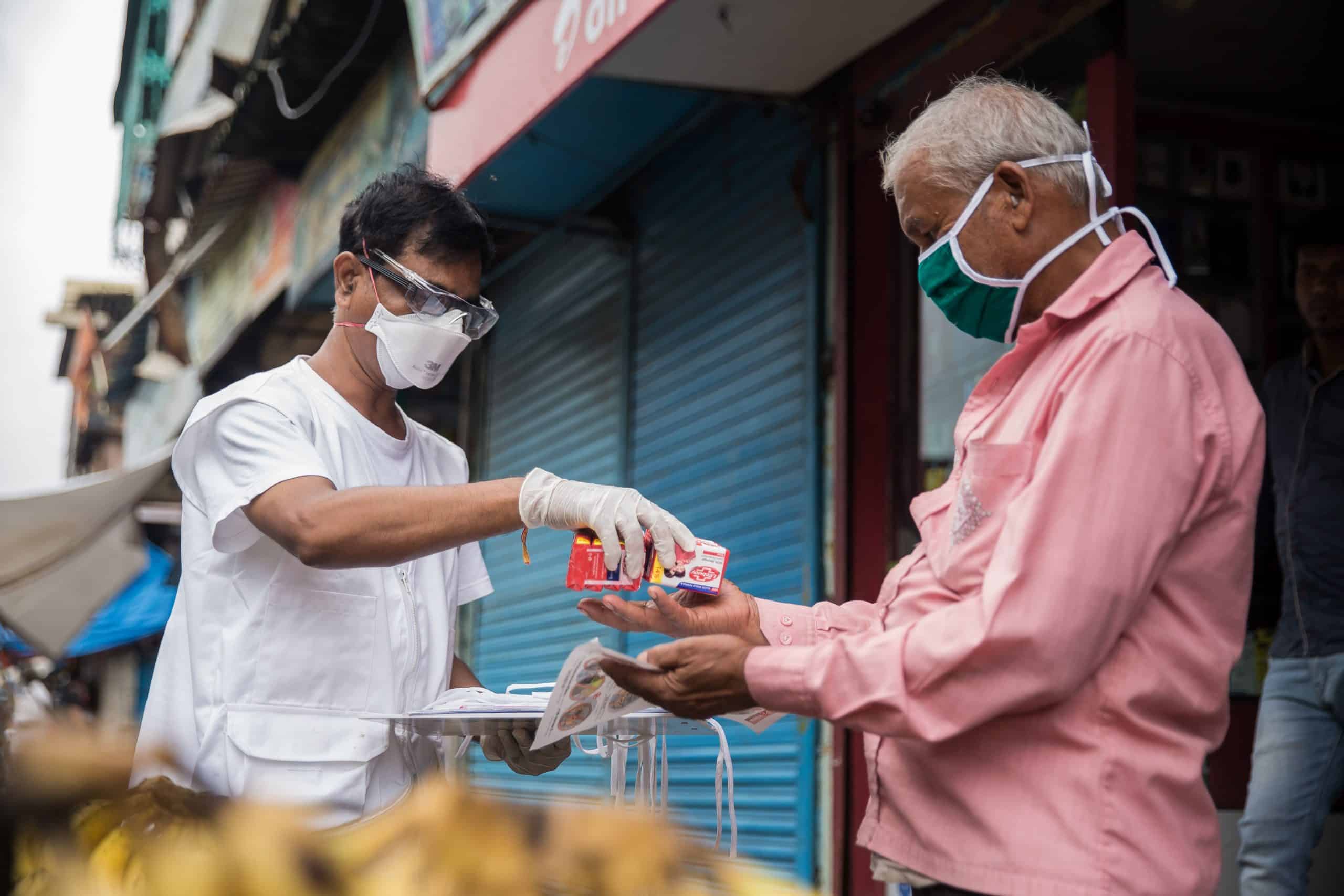
Mumbai’s informal settlements often lack vital facilities such as running tap water, adequate toilets and functioning rubbish collection. They are extremely crowded, often with five or six people living in a single room of ten-by-ten sq.ft. or even smaller than that. The very limited possibility of social distancing makes it extremely challenging to reduce the escalation of COVID-19 infection in slums in M-East ward, where MSF teams started working in early June.
Kanchan Baburao Hulangare
Patient at MSF COVID-19 treatment facility in Mumbai
When my neighbours came to know that I am COVID-19 positive, they stopped speaking to me and my family members. They closed their doors. They felt that they would get infected because of me. When they saw me, they would go back in their houses. They were avoiding me.”
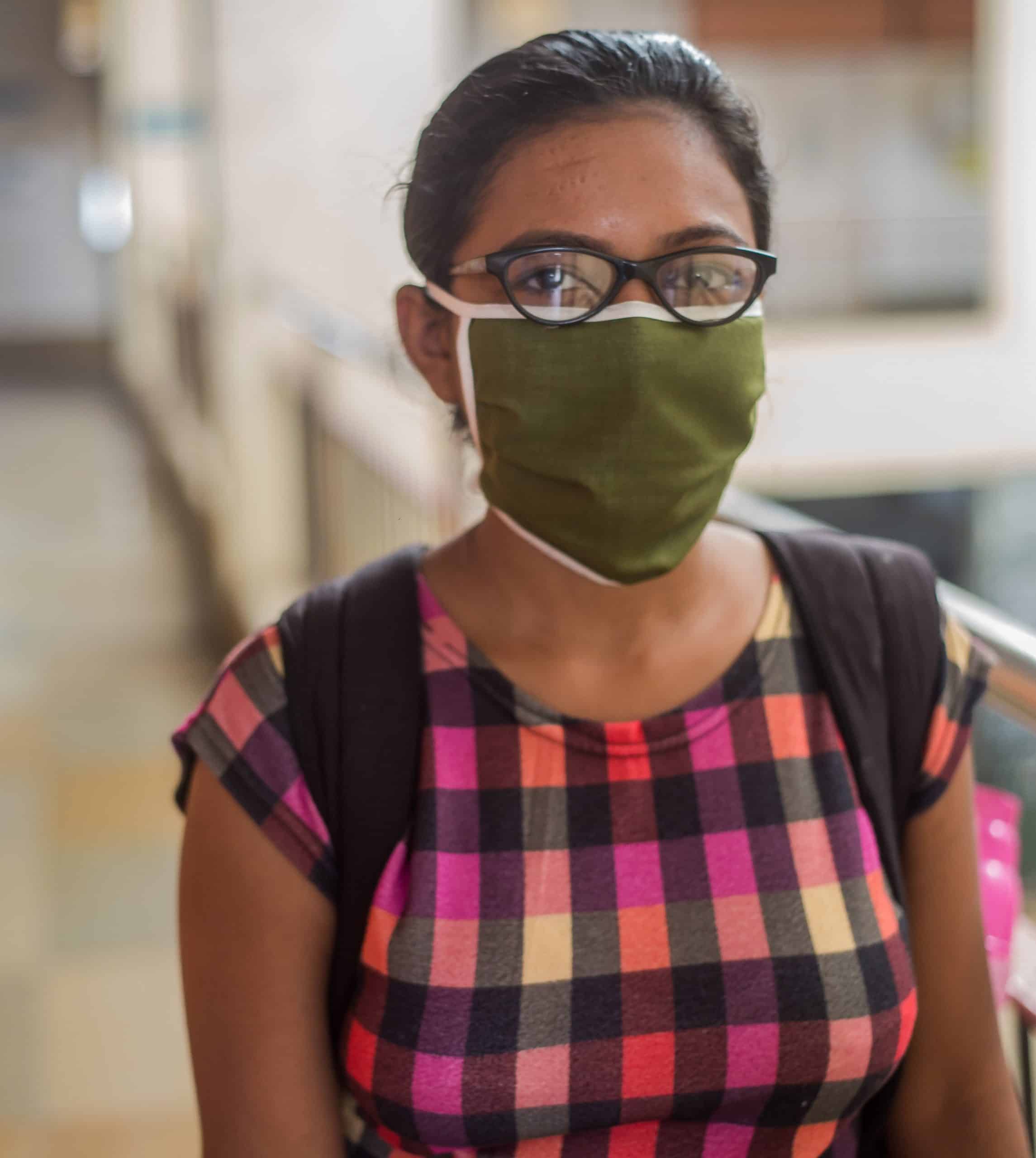
“Fourteen days ago, when I first heard that I have tested positive for COVID-19, I was scared, anxious and was worried about transmitting the disease to other members in my family,” says Kanchan Baburao Hulangare, a resident of M-East ward who received treatment at MSF-supported COVID-19 centre.
“My mother started crying as she was worried that I would be taken away from them to quarantine. She wanted to know where they would take me or admit me. My neighbours started wearing masks, stopped sitting in groups outside in common place, they closed their doors and stopped speaking to us.
“I am happy. Doctors told me that I can go home and start living a normal life.”
MSF's COVID-19 response in M-East ward, Mumbai
Reactions to a pandemic
In many places, the community was gripped by fear as the outbreak escalated. MSF and the Ministry of Health & Family Welfare (MoHFW) realised it was vital to accelerate screening, testing and treatment to decrease the number of new infections and deaths.
“When we heard about the first case in the area where I live, me and my community people were scared,” says Santosh Choure, who manages MSF’s team of health promoters at its COVID-19 project in Mumbai. “Because of the fear of infection, many of my neighbours went to their villages. Even though the size of house is small, people were not allowing their children to go out of their house and outsiders were restricted from entering the lanes.”
A triple tragedy
Since 2006, MSF has been treating patients with drug-resistant tuberculosis and complicated forms of HIV in Mumbai. “Most of our 256 patients come from the informal settlements where, due to poor living conditions, the risk of disease is high,” says Dr Hemant Sharma, Project Coordinator of MSF’s COVID-19 response in Mumbai.
“For decades, the two major epidemics of TB and HIV have led to ostracisation of those infected. If COVID-19 takes hold in this community, it will be a triple tragedy, whose spread we must together mitigate swiftly.”
From the end of June to mid-August, MSF teams, alongside health authorities in Mumbai, supported more than 400,000 residents of M-East ward. Teams are screening the suspected cases and collecting their swabs in fever clinic. MSF is collaborating with the Municipal Corporation of Greater Mumbai (MCGM) to reduce the mortality and morbidity due to COVID-19 by improving the capacity for management of mild to moderate cases in 100-bedded COVID-19 Health Centre of Shatabdi Hospital and by strengthening Infection Prevention and Control (IPC). They also carried out health promotion and helped to strengthen infection prevention and control measures within hospitals and in the community.
“We provided free facemasks, soaps and hygiene kits to residents of M-East ward and provided inpatient care to patients confirmed with COVID-19, with the objective of decongesting specialist COVID-19 centres,” says Dr Sharma. “To improve treatment outcomes for patients in a critical state using simplified techniques, MSF also installed five high-flow nasal oxygen machines.”
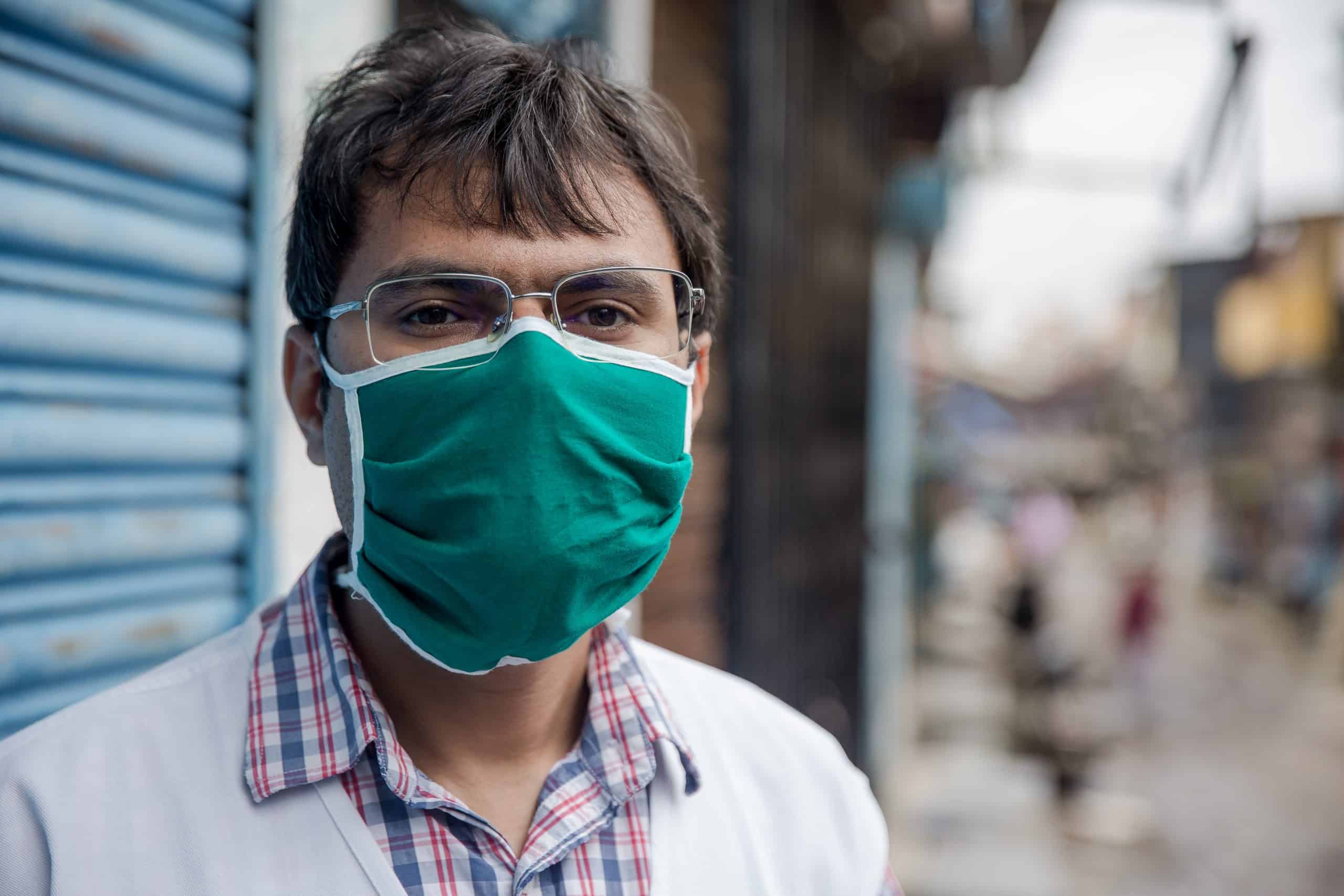
Dr Hemant Sharma
Project Coordinator, MSF’s COVID-19 response in Mumbai
“For decades, the two major epidemics of TB and HIV have led to ostracisation of those infected. If COVID-19 takes hold in this community, it will be a triple tragedy, whose spread we must together mitigate swiftly.”
From 25 June to 15 August 2020, MSF tested 1,979 patients, of whom 759 were positive for COVID-19. From 1 July to 15 August, 246 patients with mild to moderate COVID-19 symptoms were admitted to the COVID-19 DCHC at Shatabdi Hospital for inpatient care, while 39 patients were referred for specialist care.
Misinformation and fake news
For the hundreds of thousands of workers who live hand-to-mouth, the reality of losing their livelihoods due to curfews and lockdown measures have put an already vulnerable group of people at even higher risk of hardship. The stigma suffered by those who test positive for the virus, and the spread of misinformation about COVID-19, have created further challenges for those trying to halt the spread of the disease.
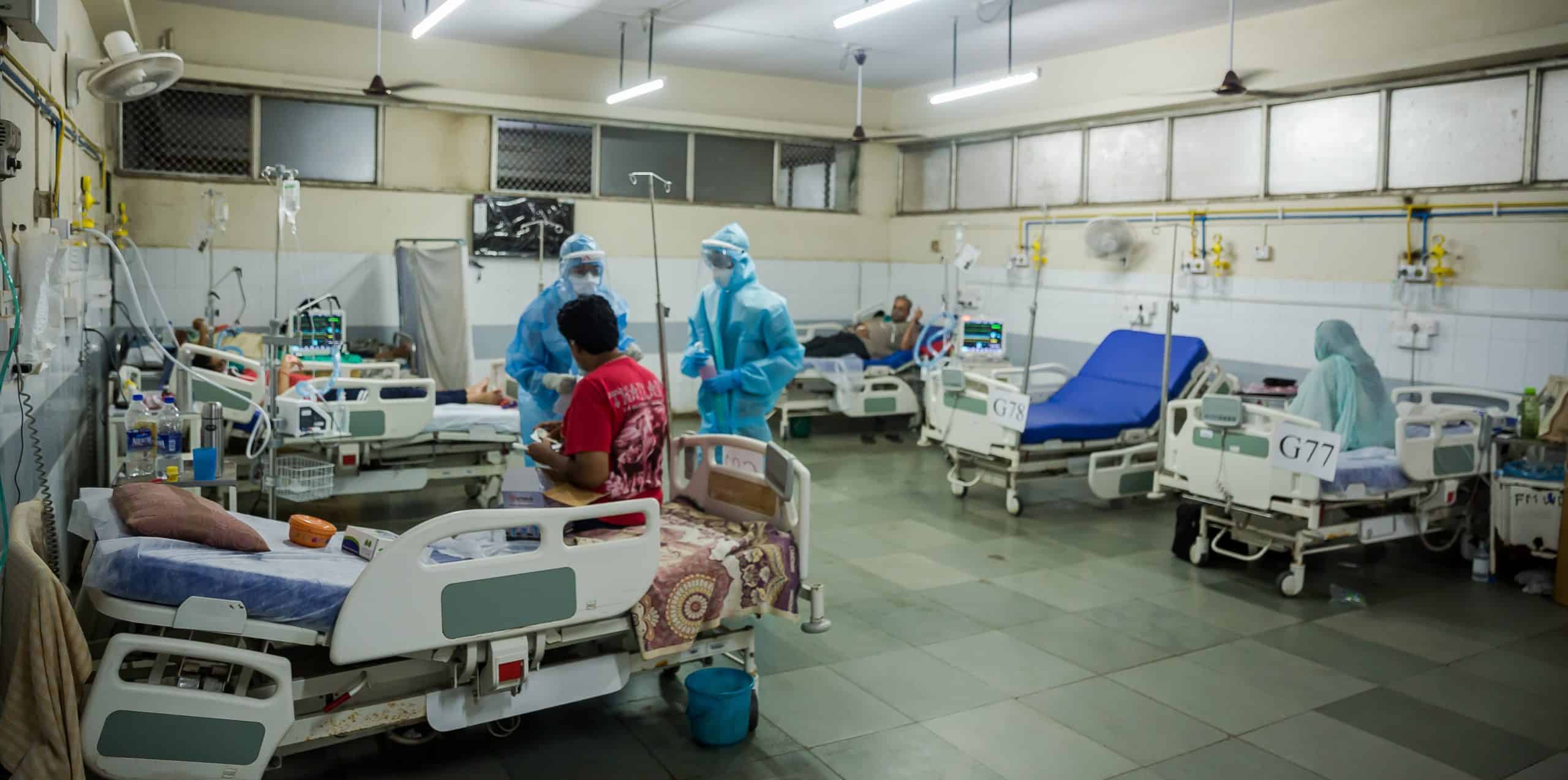
“Stigma and misinformation are really complicating our activities for preventing and treating COVID-19,” says Santosh. “Because of stigma, many people are not coming for testing even if they have symptoms. Because of misinformation on WhatsApp, some people deny the existence of the pandemic, arguing it is a racket by hospitals and the pharmaceuticals industry to make money, while others believe that hospitalised patients have their body parts harvested.”
Solidarity
Infectious diseases, like COVID-19 cannot be dealt with by the doctor alone. It’s a multi-disciplinary team effort. MSF’s Mumbai intervention has three spheres – one focusing on health promotion and public awareness, the other on the psycho-social well-being and the third at the hospital level, actually managing the medical needs of patients.
At fever clinic, medical teams conducted screening, sample from suspected case were collected and sent to the national lab. Apart from supporting in-patient care of confirmed COVID-19 cases, MSF has installed 5 High Flow Nasal Oxygen (HFNO) machines providing specialist support to improve outcomes for patients with moderate COVID-19.
At community level, MSF teamed up with public health workers to disinfect toilets and offered accurate information regarding COVID-19. It’s not just one person’s battle and we often tend to forget that. Help your neighbours in quarantine so they don’t shy away from seeking help.
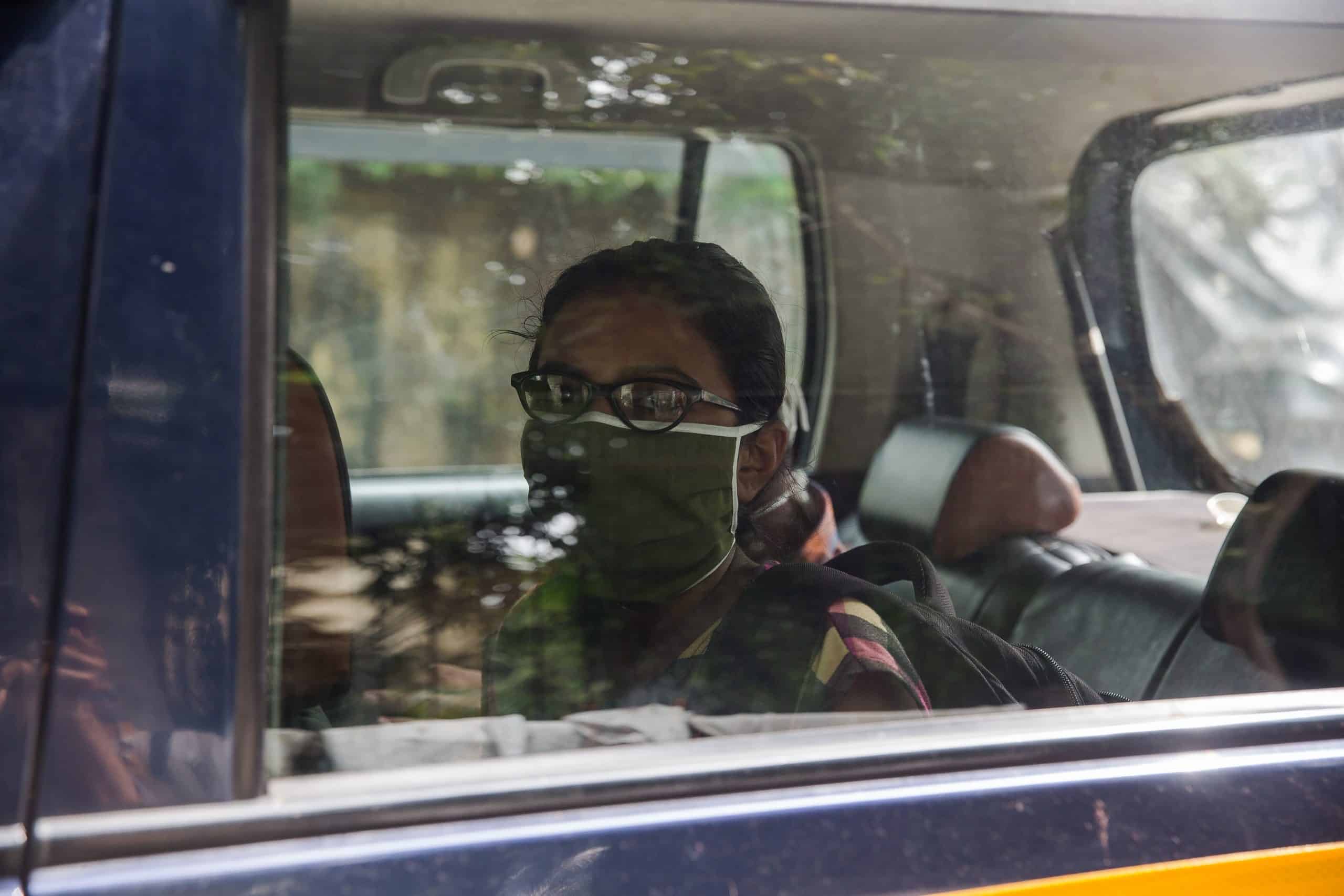
MSF IN INDIA
Médecins Sans Frontières (MSF) works in India with vulnerable communities in 9 states in India: Manipur, Maharashtra, Jharkhand, Jammu and Kashmir, Bihar, Andhra Pradesh, Chhattisgarh, Telangana and Delhi. MSF provides treatment for drug-resistant tuberculosis (DR-TB), advanced HIV and other infectious diseases. It also provides malnutrition treatment, mental health support and care for survivors of sexual violence.
In Mumbai, MSF treats complex resistant patterns of DR-TB and HIV in four different sites. MSF is also strengthening the diagnostic capacity of the state-run TB/DR-TB reference laboratory at the Jamsetjee Jeejebhoy hospital and collaborating with the hospital in research activity to evaluate the feasibility of performing the Next Generation Sequencing (NGS) test for programmatic use.
-
Related:
- coronavirus
- COVID-19
- COVID-19 in Mumbai
- Mumbai
- Pandemic


